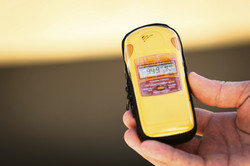Data from Russia improve radiation risk prevention
A number of uncertainties regarding the health risks of radiation exposure require investigation. These include how internal exposure compares to external exposure, and the effects of exposure while in the womb. The EU-funded research initiative SOLO (Epidemiological studies of exposed Southern Urals populations) aimed to address knowledge gaps and to improve radiation risk estimates. Radiation experts, health physicists, statisticians and epidemiologists from American, EU and Russian institutions collaborated to study exposed populations in the Southern Urals in Russia, and also exposed workers at the UK Sellafield plant. Team members set out to verify external and internal dose estimates for two groups of Russian citizens: the Mayak worker cohort (MWC) and the Techa river cohort (TRC). Shared methodology was also developed for Mayak and Sellafield plutonium workers. Researchers carried out epidemiological studies of morbidity and mortality from various cancers and non-cancer diseases in the Mayak and Sellafield workers. They found that internal plutonium exposure increases lung, liver and bone cancers, while leukaemia was caused by external radiation but not by plutonium. Researchers also showed that heart and vascular diseases were increased in those exposed to higher doses of external radiation and internal plutonium. In addition, researchers have defined a joint cohort of individuals who were exposed in utero as a result of their mothers’ exposures during pregnancy. The cohort included individuals born to members of the MWC and TRC. Further follow-up of this cohort will be required but results obtained by SOLO scientists showed that health risks from in utero have not been substantially underestimated. SOLO will improve scientists' knowledge of the health effects of prolonged radiation exposure, and influence guidelines for the control of occupational, public and medical radiation exposures, l benefitting workers and members of the public, including mothers and their unborn children, across the world.
Keywords
Radiation, dosimetry, radiation exposure, health risks, epidemiological studies, Southern Urals

